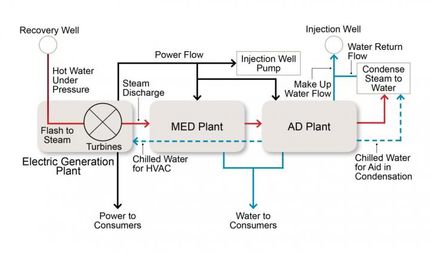BGU researchers successfully test an engineered oasis for solar desalination and arid land agriculture
Advertisement
Ben-Gurion University of the Negev and Central and Northern Arava R&D researchers presented the successful application of solar-powered membrane desalination to arid agriculture at the Conference on Desalination for the Environment in Barcelona late last month.
Dr. Andrea Ghermandi of the Zuckerberg Institute for Water Research (ZIWR) presented the paper at the conference on behalf of himself and his colleagues Drs. Rami Messalem (ZIWR), Rivka Offenbach, and Shabtai Cohen (Central Arava R&D).
“The growing global demand for food and competition for resources between economic sectors compel future agricultural systems to be more efficient in the use of natural resources such as land and water,” according to Ghermandi. In the Middle East the lack of freshwater promotes the exploitation of marginal quality sources such as brackish aquifers but the sustainability of the current management practices is questionable.
An agricultural facility aimed at the environmentally sustainable production of crops in arid environments was built and tested at the Yair agricultural research station in Hatzeva, Israel. The facility relies on solar-powered desalination with nanofiltration membranes to treat the local brackish water and produce high-quality irrigation water. Using nanofiltration membranes allows for less pumping energy and yet supplies the plant with essential elements. Red beet, a salt-tolerant crop, is grown with the concentrate stream eliminating the need for its disposal and with potential net economic benefits.
Agricultural experiments with variable irrigation water quality, application rate, and four different staple crops were conducted over two growing seasons between September 2010 and June 2011. The desalination plant operated at low pressure, energy consumption and with little maintenance over the whole period.
The results of the agricultural experiments consistently show that irrigation with desalinated water promotes a higher productivity of resources such as water and inorganic fertilizers per unit of marketable yield compared to current practices. Crops grown with desalinated water at a 25% lower irrigation and fertilizer rate than best-practice brackish water irrigation guidelines did not show any detectable detrimental effect on the marketable yield. On the contrary, yield increases are observed for sorghum and millet.
The experiments were conducted in the Arava Valley of Israel, south of the Dead Sea. The Arava basin is extremely arid and its agricultural activities rely extensively on brackish groundwater from the local aquifers. Further research at the agricultural facility in Hatzeva is currently focusing on achieving even higher water savings and on the economic viability of the system with different crops and water salinities.






























































